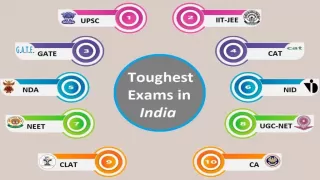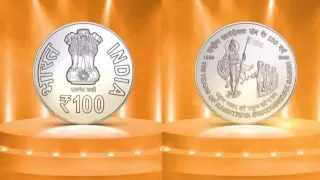For many Indian students, passing class 12th opens a direct route into government service. The year 2025 has further streamlined entry-level recruitment with the rollout of the Common Eligibility Test (CET) for several Group B and C posts, while traditional exams such as SSC CHSL, RRB entry-level notifications, defence enlistments and state-level recruitments remain key options. This article, written in a news-portal style, presents an updated, factual and practical guide on government exams after 12th: who is eligible, what the age limits are, typical starting salaries, and how to prepare. The goal is to give students and parents a clear, realistic map for making an informed career choice.
Why Consider Government Exams After 12th?
Government employment still ranks high for job security, fixed pay scales, pensions (for certain services), health benefits and social prestige. For many families, the appeal is immediate financial stability, predictable working hours, and additional perks such as housing allowances, travel concessions and job protection. However, entry immediately after 12th generally leads to clerical, support or junior technical roles. Graduates typically qualify for higher posts; therefore, the decision to attempt exams after 12th is often a trade-off between early income and long-term career progression.
Major Exams Open to 12th-Pass Candidates (Updated 2025)
| Exam | Conducting Body | Eligibility | Typical Age Limit | Typical Starting Salary (Approx.) | Common Posts |
|---|---|---|---|---|---|
| SSC CHSL | Staff Selection Commission | 12th pass (any stream) | 18-27 years | Rs 25,000-Rs 35,000 + allowances | Lower Divisional Clerk, Data Entry Operator, Postal Assistant |
| SSC MTS | Staff Selection Commission | 10th/12th pass | 18-25 years | Rs 18,000-Rs 25,000 | Multi Tasking Staff, Peon, Support Roles |
| RRB Group D / NTPC (some posts) | Railway Recruitment Board | 10th/12th pass | 18-33 years (varies) | Rs 22,000-Rs 35,000 | Track Maintainer, Helper, Ticket Collector, Clerk |
| Indian Army (Soldier GD / Clerk) | Indian Army | 12th pass (varies by post) | 17.5-21 years | Rs 25,000-Rs 45,000 + allowances | General Duty Soldier, Clerk, Storekeeper |
| NDA | UPSC | 12th pass (Science for Air/Navy; any for Army) | 16.5-19.5 years | Officer stipend ~Rs 56,000 during training; higher on commissioning | Officer Cadet in Army, Navy, Air Force |
| Indian Navy (SSR/AA/MR) | Indian Navy | 12th pass (stream-specific) | 17-21 years (varies) | Rs 30,000-Rs 45,000 | Sailor, Tradesman, Technical Roles |
| Indian Air Force (Group X/Y) | Indian Air Force | 12th pass (technical roles may need science) | 17-21 years | Rs 33,000-Rs 50,000 | Airmen (Technical & Non-Technical) |
| State Police Constable | State Police Departments | 12th pass (varies) | 18-25 years (varies) | Rs 22,000-Rs 35,000 | Constable, Driver, Guard |
| India Post (GDS) | India Post | 10th/12th pass (depending on post) | 18-40 years (varies) | Rs 12,000-Rs 25,000 | Gramin Dak Sevak, Mail Deliverer |
| Co-op Bank / RRB Junior Assistant | Regional Banks / RRBs | 12th pass (some require diploma) | 18-28 years | Rs 20,000-Rs 35,000 | Clerk, Junior Assistant |
2025 Update: Common Eligibility Test (CET)
The CET, rolled out in 2025 under the National Recruitment Agency framework, standardises preliminary-level screening for many Group B and C posts across central agencies and participating states. Key points:
- The CET is conducted periodically and aims to replace multiple preliminary exams for similar posts.
- Scores are typically valid for a fixed period (varies by agency) and can be used to apply for multiple recruitments.
- For 12th-pass aspirants, focusing on CET preparation can provide wider opportunity access to SSC, Railways, IBPS (select roles) and some state recruitments.
Stream-Wise Pathways
Choosing exams after 12th often depends on the student’s stream:
Science Students
- NDA (for those with Physics & Maths aspiring for Air Force or Navy)
- Air Force Group X (technical) and Navy SSR for technical trades
- Clerical and technician roles in railways and public sector units
Commerce Students
- SSC CHSL clerical roles, RRB NTPC clerks, cooperative bank junior positions
- Account-related posts in state departments and revenue offices
Arts/Humanities Students
- SSC MTS, CHSL, State-level clerical recruitment, patwari/revenue assistant exams
- Post office roles and public service support jobs
Top 10 Exams 12th-Pass Candidates Should Consider
- SSC CHSL: central clerical cadre; steady vacancies and predictable pattern.
- RRB Group D / NTPC (selected posts), large intake; railway perks.
- NDA: best for those targeting officer cadre early; high prestige.
- Indian Army Soldier/Clerk: early enlistment, training benefits and pension for some cadres.
- Indian Navy SSR/AA/MR: technical & non-technical trade roles for youth.
- Air Force Group X/Y: technical training for science students; good allowances.
- State Police Constable: localised recruitment with physical tests and training.
- India Post GDS: rural/urban posts with flexible hours for some positions.
- Co-op Bank / RRB Junior Assistant: entry into banking function at ground level.
- State Junior Clerks / Revenue Assistant / Patwari: region-specific but stable.
Realistic Salary Expectations
Advertisements often highlight attractive gross salaries. What matters for candidates is the in-hand salary and long-term benefits. Typically:
- Entry clerical roles: Basic pay from Rs 19,000-Rs 30,000; in-hand ~Rs 18,000-Rs 25,000 after deductions depending on allowances and deductions.
- Railways and defence enlisted posts: Basic pay plus grade pay and DA; effective in-hand may be Rs 22,000-Rs 40,000 at start (varies by posting and allowances).
- NDA / Officer cadet stipends and post-commission pay: Higher basic and faster growth over the career.
Preparation Roadmap (Practical & News-Portal Style Advice)
This section offers a step-by-step, no-nonsense plan for 12th-pass aspirants.
1. Shortlist Targets
- Decide if you want desk work (clerical), field jobs (police/defence) or technical roles (railways, air force).
- Check age limits and minimum educational stream requirements for each target.
2. Build a Foundation (NCERT + Basics)
- Many objective questions test basics from class 9-12: arithmetic, grammar, general science and reasoning.
- Use NCERT books for clear conceptual grounding and then move to exam-specific guides.
3. Practice PYQs and Mock Tests
- Past year papers reveal recurring patterns. Timed mocks improve speed and accuracy, critical for CET, SSC and RRB.
4. Current Affairs & General Knowledge
- Daily short notes on national events, budget highlights, government schemes and major global developments are essential for sections in SSC and state exams.
5. Physical Fitness for Defence & Police
- Start endurance and strength training early, running, push-ups, long jumps and other tests specific to the service.
6. Document Readiness
- Keep class 10 and 12 mark sheets, domicile certificates, ID proofs, caste certificates (if applicable), and passport-size photographs ready. Many applications close quickly due to missing paperwork.
Advice for Parents
Parents play a pivotal role in the 12th-to-job transition. Practical suggestions:
- Discuss short-term goals (early job vs higher education). A year of focused preparation after 12th can yield multiple job offers; simultaneous graduation can open higher-level jobs later.
- Encourage physical training if the child aims for defence/police roles. Respect rest and mental health; burnout reduces performance.
- Plan financially. Early job income supports families but weigh long-term career prospects; many candidates return to study for better jobs.
Gender-Sensitive Choices and Safety
Safety, postings and family expectations influence the choices of many female candidates. Most exam boards offer reserved posts and sometimes women-only vacancies (e.g., lady constable positions). Preferred options for many girls include:
- Central and state clerical roles (predictable hours, office-based).
- Railways and postal services (local/nodal postings possible).
- Nursing and paramedical roles through state health recruitments (for science students).
Common Myths Debunked
- Myth: “All government jobs pay poorly.” Reality: Many entry-level jobs complement allowances, medical benefits and pension schemes, making the total value higher.
- Myth: “You must join coaching to clear exams.” Reality: Coaching helps some; disciplined self-study with quality materials and mocks works for many candidates.
- Myth: “After 12th you cannot progress further.” Reality: Many officers and senior professionals began with 12th-based entries and later upskilled via promotions and education.
Checklist Before Applying
- Confirm exact age criteria and stream requirements for the current notification.
- Verify application dates, fee structure and the list of acceptable documents.
- Match your strengths, numerical speed, language skills, and physical fitness to the exam pattern.
- Plan attempt strategy: CET first (if applicable), then specific notifications that accept CET / direct applications.
Frequently Asked Questions (Concise)
Can I attempt UPSC or SSC CGL after 12th?
No. Most higher-level exams like UPSC and SSC CGL require a graduate degree. After 12th you can start in clerical or technical posts and later appear for graduate-level recruitments.
Is CET compulsory for all entry-level jobs?
CET covers many Group B and C prelim-type recruitments in participating agencies, but some recruitments still run their own selection process. Always read the specific notification.
Which exam gives the fastest result-to-job timeline?
State-level recruitments, SSC MTS and some railway notifications often have shorter recruitment cycles. Defence enlistments have scheduled centres and training windows.
How to Choose Wisely?
Government exams after 12th in 2025 offer a broad spectrum: from clerical desks to uniformed services. The strategic approach is to match personal aptitude (desk vs field), family circumstances, long-term ambitions and the realistic salary-perk picture. Prepare on a CET-first strategy where applicable, sharpen NCERT fundamentals, practise past papers and charts of physical readiness for demanding services. Above all, treat the first job as a launchpad: continue education, aim for promotions and keep options open to upgrade to graduate-level recruitments later.
Quick Action Plan
- Week 1-4: Decide target exams and prepare documents.
- Month 1-3: Finish NCERT basics and begin daily current affairs notes.
- Month 4-8: Start full-length mocks, revise weak topics and schedule physical training if needed.
- Month 9-12: Apply to notifications, adapt to admit card timelines, and maintain steady revision until results.
This guide compiles up-to-date information, practical tips and realistic expectations for students finishing class 12 in 2025. Check official notifications for exact dates, detailed eligibility and reservation rules before applying.


























